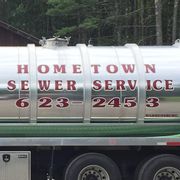
If you depend on a septic tank system instead of a public sewage system, then you’ll have to be careful what you flush down the drains and stay on a proper septic maintenance schedule. Any abuse or untreated problems to your tank or leach field can eventually cause serious issues, even if they don’t seem to have an impact right now. The following dos and don’ts can help guide you to a longer lasting septic system.
Do:
Know the location of your tank and leach field.
Leach fields are where your water goes after treatment. The area to the leach field, as well as the field itself, is full of underground piping. It is important to make sure that trees are not too close to the field, because roots will penetrate the piping. Make sure you don’t drive or garden around the tank or leach field. Compacting the earth in this area or adding plant life can result in damage to your septic equipment or alter the balance of the soil.
Stick to a regular septic maintenance schedule.
Normal households should have their septic system inspected every three years. If your system has additional floats, pumps, or mechanical components, then consider increasing this frequency to once a year. A septic service professional can help by determining the number of people in your home, the size of your tank, and the amount of wastewater generated.
Conserve water as much as possible.
Repair leaking faucets or toilets to prevent excess water from entering your sewage tank. Extra long showers, walking away from the dishes while the water is running, and washing only a few items of clothing also add to this problem.
Don’t:
Allow excess water to flow into your tank or leach field.
Nearby swimming pools, roof drainage, or new construction which sends more water to the location will disrupt and possible overflow the leach field. This prevents the earth from naturally cleansing the wastewater as it’s introduced into the soil.
Allow or attempt septic maintenance, except by a licensed professional.
 Certification is required for septic maintenance professionals in New York. Experts know how to handle gas buildup and sewage overflow, and they can identify which part is broken if your system is not working correctly.
Certification is required for septic maintenance professionals in New York. Experts know how to handle gas buildup and sewage overflow, and they can identify which part is broken if your system is not working correctly.
Flush nondegradable items.
Items such as paper towels, tampons, cigarettes, cooking fats, kitty litter, and coffee grounds will disrupt septic tank and leach field operations. Since these items do not break down at an accelerated rate, they sit in the tank longer than they should and could begin to clog the tank or some of the leach field pipes. If field pipes get clogged, then a septic maintenance professional must determine which pipe is restricting flow and dig it up, which is an expensive endeavor.
When you’re ready to set up your septic maintenance schedule, contact the experts at Hometown Sewer Service. They are a fourth-generation company servicing Warrensburg, NY, and the Lake George area since 1949. Call today, at (518) 623-2453 for a free estimate, or visit our website for more information.
About the Business
Have a question? Ask the experts!
Send your question

